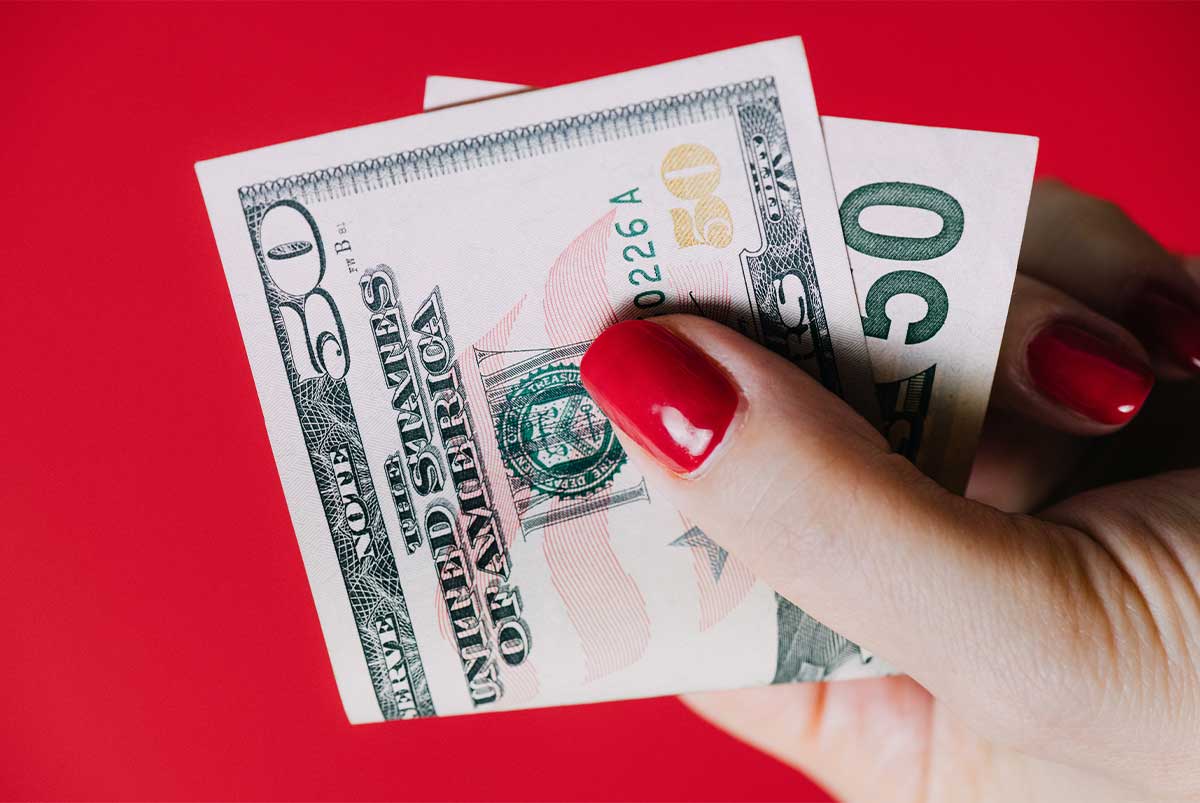Ready To Buy a Home?
Get Approved to Buy a Home
Rocket Mortgage® lets you get to house hunting sooner.
Depending on the type of mortgage you have, you may be required to have an escrow account to pay your property tax and homeowners insurance. When mortgage servicing companies perform their annual escrow analysis, they may find a surplus or shortage of funds.
Let’s take a look at what happens when there’s a surplus of funds in your escrow account, triggering what’s known as an escrow refund.
Escrow Refund, Defined
Quick refresher: Escrow is a legal arrangement where a neutral third party temporarily holds onto funds. An escrow account safeguards a buyer and seller from financial losses due to closing cost mishaps, and it keeps a homeowner and a mortgage lender protected from missed or unpaid bills.
An escrow refund is when you receive a check in the amount of any excess funds that were held in your escrow account.
What is an escrow account?
An escrow account is like a savings account; money can be put into it, and money can be taken out of it. The account holds funds that will be used at a later time. The money in the escrow account is drawn from your monthly mortgage payments, which likely includes the cost of taxes and home insurance along with your principal and interest costs, in one lump sum.
Instead of the homeowner paying for insurance and taxes directly, your mortgage servicer will use the money set aside in the escrow account to pay your homeowners insurance and property taxes on your behalf.
When money from the escrow account is used to pay bills, the transaction is called an escrow disbursement.
When Do You Get Escrow Refund Checks?
There may be some instances when you’ve built up a surplus of funds in your escrow account. The overages could total more than what’s needed or allowed to be held in the account. If you find yourself in either of those scenarios, you might receive an escrow refund check – and who doesn’t love getting a check in the mail?!
You’ll likely receive an escrow refund check once your lender has done their required annual escrow account analysis. But, if you’re eligible, you can request a refund at any time of year.
To be eligible for a refund, you must be current on your payments; otherwise, your mortgage servicer may be allowed to keep the surplus and use it for future bills.
If there’s a surplus of $50 or more in your escrow account, lenders have 30 days to send you a refund. If there’s a surplus of less than $50, a lender can either send you a refund or roll it over to next year’s escrow payments.
Let’s take a look at some refund scenarios:
- Overpayment: If you opened an escrow account for your earnest money deposit but you put in more than you needed to, you should get your unused escrow money back when the account is closed.
- Lower taxes: If your property tax was lowered and you deposited more into your escrow account than what was necessary to cover it, you may get an escrow refund.
- Homeowners insurance bill change: This is similar to the property tax scenario. If your insurance premium decreases, there may be excess funds in your escrow account that may be refunded to you.
- Paid off your mortgage: If you have an escrow account balance after paying off your mortgage, it should be refunded to you.
If you think you’re eligible for an escrow refund, check with your mortgage servicer to see what their escrow refund policy is and if you meet their refund requirements.
Do You Get Your Escrow Refund at Closing?
You probably used an escrow account to purchase your home. The account likely held your earnest money deposit before closing. The escrow account you used to close on the home is a different escrow account from the one you use for your monthly and/or annual bills. The escrow account you used to close on the home is closed once you become a homeowner.
What is an escrow balance refund?
Any time an existing escrow account is closed and there are remaining funds, you should receive an escrow balance refund for the remaining balance. If you paid off your mortgage, you should receive a check from your lender within 20 days.
What Happens to Your Escrow Refund When You Refinance Your Mortgage?
If you refinanced your mortgage and were able to secure a lower monthly payment, you may receive a refinance escrow refund.
If you refinanced with the same lender, your current escrow account will likely remain open. You may not get a refund unless your property taxes and/or homeowners insurance have adjusted (think: gone down) with your new mortgage payments.
If you refinanced with a new lender, a new escrow account will be opened and your previous escrow account will be closed. If there are any funds left in the old account, you should receive a refinance escrow refund check.
How Much Can Lenders Hold In Escrow?
The Real Estate Settlement Procedures Act[1] (aka RESPA or Regulation X) limits how much your lender can hold in escrow for your taxes and insurance, and requires them to refund you if what’s in your account is over the limit. Depending on your loan servicer, the maximum amount they will likely hold in your escrow account is enough to:
- Pay for your annual property tax and insurance bills
- Create a cushion of 2 months’ worth of monthly escrow payments, plus an additional $50
The cushion is there in case the lender underestimated your tax and insurance bills and needs extra money to pay them.
If you’d like to know how much money your lender can keep in your account, first, you’ll need to calculate your monthly escrow payment amount. Do this by calculating your monthly tax and homeowners insurance payments and then adding each payment together.
Once you’ve figured that out, multiply your escrow payment amount by 2 (for the cushion). Add that to your estimated annual tax and insurance bills and then add $50.
The answer is around the max that should be in your escrow account. Any balance over that amount could trigger a refund.
You can use our mortgage calculator to give you a better look at the specific numbers for your situation.
Escrow Refund Wrap-Up
Sometimes an escrow account ends up with more money than is necessary to pay the bills. Maybe the property tax was lowered. Maybe the homeowners insurance premium decreased. Maybe the mortgage loan was repaid or you overpaid into the account.
Excess funds can trigger an escrow refund. If there is money to refund, it usually occurs during the annual escrow account analysis. But remember, just because there’s extra money in the account doesn’t always mean you’ll get it back.
Depending on how much you’re over and if you’re current on your payments, mortgage servicers may issue an escrow refund check or roll over the excess funds to pay for next year’s bills.
So, keep paying into your escrow account – and keep a close eye on the balance.
See your refinancing options
Ready to see what your new mortgage could look like? Get expert recommendations today and start planning for your future.
The Short Version
- An escrow refund is when you receive a check in the amount of any excess funds in your mortgage escrow account
- Escrow refunds usually occur during annual reviews. When excess funds are identified, your lender has 30 days to send you a check
- You may receive an escrow refund if you paid more into your escrow than necessary, you’re closing an escrow account, you’ve paid off your mortgage or you’re refinancing
Consumer Financial Protection Bureau. “12 CFR Part 1024 – Real Estate Settlement Procedures Act (Regulation X) Section 1024.17 Escrow accounts.” Retrieved December 2021 from https://www.consumerfinance.gov/rules-policy/regulations/1024/17/




